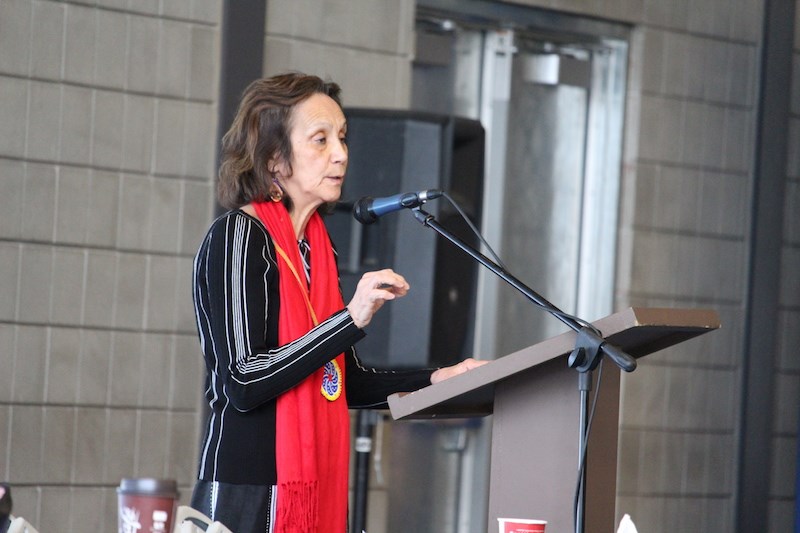A national conversation about Indigenous rights and history took centre stage in Thompson March 21–22, as the University College of the North played host to the Truth, Reconciliation and the Road to Wellness Conference.
While this two-day event featured a variety of speakers, ranging from a Canadian senator to a former member of the Truth and Reconciliation Commission, the overarching theme that permeated most sessions was the importance of talking about past injustices and how they manifest in today’s society.
Senator Mary Jane McCallum knows about this phenomenon all too well.
Even though she was appointed to the upper house of Parliament on Dec. 4, 2017, Senator McCallum spoke on Thursday about how memories of surviving residential school followed her into one of the highest rungs of the federal government.
Less than three months after her appointment, McCallum was forced to speak up after fellow Senator Lynn Beyak posted approximately 100 letters on her official government website that supported her stance on the residential school system.
This followed on the heels of a speech Beyak made to the Senate on March 7, 2017, where she went into detail about the “positive” effects and “joy” that came as a result of this system that took around 150,000 Indigenous children out of their homes, including McCallum.
“I felt fear and shame as I started to read the 100 letters posted on the senator’s website,” she said. “I realized that Canada was ready to have this conversation about racism and the best way to deal with these letters would be to address the issues described in the letters.”
While diving into the middle of this cultural exchange was painful, McCallum closed her speech on Thursday by telling everyone in attendance that starting this kind of dialogue is the only way to guarantee that reconciliation is headed in the right direction.
This sentiment carried over into the conference’s business panel later that morning, which featured representatives from Vale, the Northern Regional Health Authority and the Communities Economic Development Fund.
These panellists talked about how they are actively trying to incorporate the wants and needs of Indigenous communities into their corporate strategy, which lines up with the Truth and Reconciliation Commission’s 92nd call to action.
Ryan Land, manager of corporate affairs for Vale, mentioned how the mining company’s rebranding in 2006 afforded them the rare opportunity to get a “second chance at a first impression.”
“Because I don’t think we got it entirely right at all for the first 50 years or so of our history,” he said. “It only is in the past several years that we’ve really gone through a transformation.”
According to Land, this transformation was made possible thanks to input from the likes of former Nisichawayasihk Cree Nation chief Jerry Primrose, current deputy chief Ron Spence and other residents of surrounding communities like Nelson House.
“That helped us understand what the barriers were. And it turned out that there were cultural barriers, but they were mostly about our culture as a company.”
As a result of these conversations, Land said that they’ve managed to make Vale a much more inclusive place in 2018, having attained around 50 per cent self-indentified Indigenous employees when it comes to their process operators and labourers.
However, Janet Head, a member of the Opaskwayak Cree Nation, closed out Thursday’s festivities by mentioning that there is still plenty of work to do, since unpacking decades of intergenerational trauma and lateral violence in the Indigenous community is not easy.
Thankfully, through putting an emphasis on maintaining the family unit at home and continuing the conversation about past injustices, Head told the audience that she remains hopeful for the future.
“We are here. You are here. And we can tell Canada that they didn’t kill the Indian in us.”




